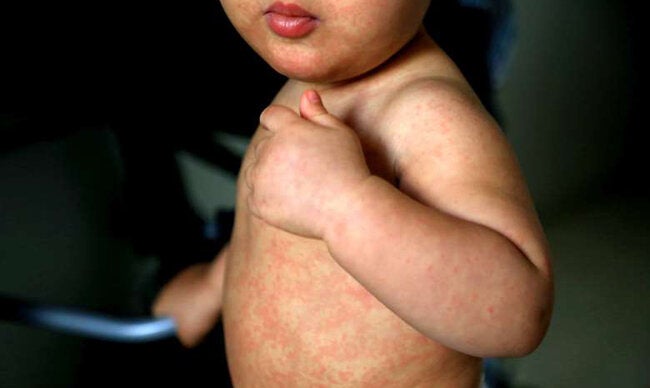
Washington, DC, March 21, 2024 (PAHO) – The Pan American Health Organization (PAHO) organizes a webinar aimed at medical, nursing, laboratory and epidemiology personnel to provide an update on clinical, surveillance and vaccination . of measles, given the increase in cases of this disease in the Americas.
So far in 2024, as of March 16, 92 confirmed cases have been reported in seven countries – the vast majority in the United States and Canada – which represents 28% more than the total number of cases reported in all of 2023.
“Measles cases are increasing everywhere,” warned Dr. Gloria Rey, regional advisor on Immunizations at PAHO. Globally, cases reported to the World Health Organization (WHO) increased by 79% in 2023 compared to 2022 and more countries in the world (51) experienced large outbreaks. Furthermore, according to Rey, this year there is an early increase in cases, which suggests that the situation could intensify in the coming months.
Despite the existence of an effective vaccine against measles, cases and deaths from this disease continue to occur around the world. In 2022, 136,216 measles-related deaths were estimated, representing an increase of 43% compared to the previous year.
In the Americas, there is a risk of receiving more cases and generating outbreaks due to low vaccination rates. In 2024, only 15% of reported cases were vaccinated based on available data. Furthermore, 70% of those affected were under 10 years old and 78% of the cases contracted the disease outside their countries (imported) or were related to this importation.
For Desiree Pastor, PAHO regional advisor on Immunizations, «the COVID-19 pandemic exacerbated the downward trend in measles vaccination coverage, which has not yet recovered and remains stagnant.» For years, coverage with the first dose of the MMR or MMR vaccine remained above 90%, but in 2019 it fell to 87%, reaching its lowest point in 2022 at 85%, well below the ideal recommended by PAHO of at least 95% to prevent outbreaks.
As a valuable piece of information, Dr. Pastor pointed out that, despite the pandemic, the countries in the region managed to carry out vaccination campaigns, reaching more than 36 million children from 1 to 12 years old between 2021 and 2023.
For her part, Dr. Tracy Evans-Gilbert, an expert in clinical pediatrics and member of the Regional Commission for the Monitoring and Sustainability of the Elimination of Measles, Rubella and Congenital Rubella Syndrome (CRS) in the Americas, provided a informative session on the clinical aspects of measles and rubella, highlighting their differences with other diseases such as dengue. Her presentation sought to familiarize health care workers with measles so that they can recognize, report and address it in a timely manner.
Dr. Evans-Gilbert recalled that measles, in addition to fever and rash, frequently produces respiratory symptoms such as cough and coryza (runny nose), which is not observed in dengue. In addition, the virus is highly contagious, with the capacity to infect between 12 and 18 people for each case. It is transmitted through respiratory droplets when someone infected talks, coughs or sneezes, and can remain active in the air for up to 2 hours, spreading within a radius of 2 to 4 meters.
Given the eventual arrival of more imported cases of measles to the region, PAHO advisors highlighted the importance of implementing essential prevention and control measures. This includes vaccination in high-risk areas as soon as possible, enhanced epidemiological surveillance, which includes active searches for cases in the field and focus in areas such as border municipalities, and rapid response to outbreaks, which requires trained teams and protocols to identify . and handle cases appropriately.
Last January, PAHO issued an instant alert to the countries of the Americas to renew surveillance and increase vaccination efforts, given the increase in cases of this disease in the world. Since March 2023, the Organization has made available in its virtual campus two free self-study courses that seek to contribute to improving surveillance and response to measles outbreaks.






